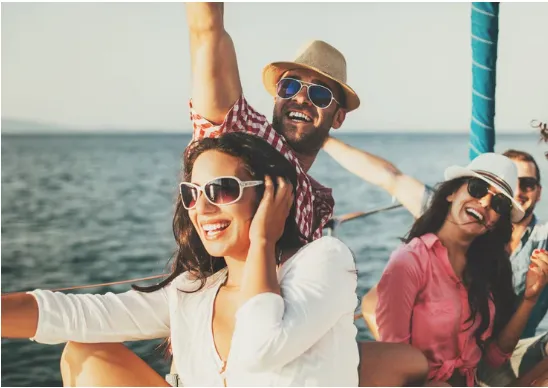
Too Much Fun in the Sun
Too Much Fun in the Sun
By Amy Rickman
Our family loves spending the summer boating, hiking, and camping—sunshine is part of every adventure! Living in the mountains, even a ski day can lead to a sunburn. With all that outdoor excitement, sunburns can quickly become a real threat to our good times. That’s why we’ve learned to stay prepared with natural remedies and smart sun habits so we can enjoy every moment under the sky, pain-free.
Summer sun can be glorious, but overexposure can quickly lead to painful, damaging sunburns. While prevention is the key, nature offers powerful tools to soothe and heal sunburned skin.
The Importance of Natural Sunshine
Sunshine is one of nature’s greatest healers. Moderate exposure helps our bodies produce vitamin D, essential for strong bones, balanced mood, and immune support. Sunlight also supports circadian rhythms and serotonin production, boosting energy and emotional wellness. While sun protection is vital, avoiding all sun is not the answer—wise exposure is. Aim for early morning or late afternoon sun, and take breaks in the shade when UV levels peak. Wear lightweight clothing, hats, or natural sunscreen to enjoy the sun without harm. Be careful of many sunscreens that may be full of toxins. This is one I have ordered in the past that is cleaner: https://amzn.to/3FVRUGf
In fact, studies show that over 40% of people in the U.S. are deficient in Vitamin D, a critical nutrient that supports immune balance, calcium absorption, and mood regulation. Overuse of chemical sunscreens and avoidance of sunlight may contribute to widespread deficiency. While supplements can help, the body creates the most bioavailable form of vitamin D through natural sunlight exposure on the skin. At least 10–20 minutes of sunlight on bare skin a few times a week can make a world of difference. This is a D3/K2 supplement my husband uses when he isn’t able to get enough sunlight in the colder months: https://amzn.to/4j7Vvji
Early morning sunlight is one of the most beneficial—and safest—ways to support the body naturally. Just a short exposure after sunrise helps stimulate vitamin D production, which supports immunity and bone health. It also jumpstarts melatonin regulation, setting your body clock for better sleep and balanced circadian rhythms. Morning sun boosts mood through serotonin release and reduces reliance on artificial light. This gentle daily habit nourishes the whole system—body, mind, and spirit—before the UV index peaks.
Homeopathy for Sun Exposure
To support the body during sun exposure, you can also use homeopathic remedies like:
· Sol 30C or 200C: Helps people who are oversensitive to the sun and prone to sunstroke or sun-induced headaches.
· Belladonna 30C: For sunstroke, red face, and throbbing headache with heat. https://amzn.to/42nl0WN
· Glonoinum 30C: For sun-induced headaches, especially when pulsing or pressure is felt. https://amzn.to/4i5WCP1
These can be taken before or after sun exposure depending on individual sensitivity.
When Sunburn Gets Serious
Topical
· Coconut oil https://amzn.to/43ICWgR or unsalted butter can prevent sunburn but may not be as strong as regular sunblock.
· Calendula lotion can be put on any type of burn including sunburn. https://amzn.to/4juMeSm
Mild, Severe or Deep Sunburns
Cantharis 30C: For intense burning pain, rawness, and relief from cold applications. https://amzn.to/4i7sDXa
Causticum 6C or 200C: For deep or old burns that never fully healed. https://amzn.to/3XUEv7z
Itchy, Prickly, or Stingy Sunburn
Urtica urens 6C to 200C: Helps with prickling, itching, and hive-like redness. https://amzn.to/3E9JLxz
Final Thoughts
Nature gives us everything we need to protect, heal, and restore. From natural sunscreen to homeopathy and mindful aftercare, you can support your skin through summer’s intensity. Just remember: when in doubt, listen to your body and seek medical support if symptoms worsen. Let’s run to the mountains, lakes, ocean and outdoors to get some much needed sunshine and knowing there are homeopathic and natural options that can help.
Stay safe and hydrated. May your spring and summer be sun-kissed—not sunburned!
